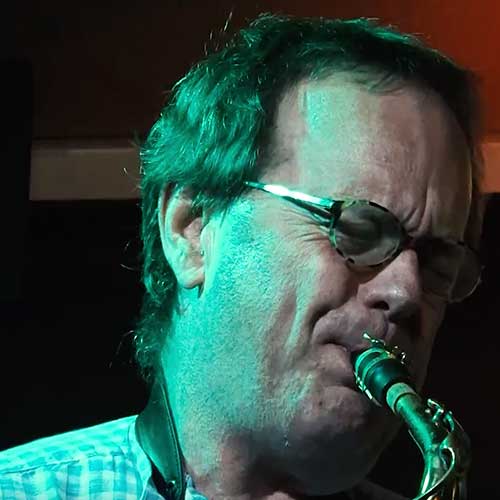
For several years now, the Black Dog Café has garnered a reputation as the preeminent spot to hear some of the more adventurous and experimental music to be found at the Twin Cities Jazz Festival. However, one needn’t look too hard on the venue's programming calendar the rest of the year to find a handful of performances each month that are worth checking out, such as the premier of saxophonist/composer George Cartwright’s new quintet this Tuesday evening. Having first received critical acclaim for leading the experimental jazz band Curlew in New York City from 1979 through 1993, Cartwright has never shied away from genre-bending, and has operated on the fringes of many different music scenes in town since relocating to St. Paul in 1999. Yet, Cartwright is universally revered, which allows his projects to draw from several different pools of players including improvisers, purveyors of “new music,” and jazz musicians. Due to Cartwright’s openness to new ideas, his intriguing compositions, and his intrepid musical approach, he has no difficulty finding takers when he conceives of a new project. Originally a quartet made up of Cartwright, the Zeitgeist Ensemble’s Heather Barringer on vibraphone and percussionist, Jelloslave’s Michelle Kinney on cello, and Le Percheron’s Noah Ophoven-Baldwin on trumpet, the saxophonist decided to add guitarist Andrew Broder of the indie-rock band Fog’s for the Black Dog performance. “These musicians are all top-notch, unusual and incredible musicians, and I’m thrilled to get to play with them,” Cartwright explains. “This quintet is kind of an improvised group, but I am doing pieces that I’ve written before that I like, but have not recorded. Some of these tunes are 25-30 years old and include some of the earliest things I’ve written.” Reflecting on nearly 20 years since relocating to Saint Paul, Cartwright is very optimistic about the current state of the music: “The improvised scene in the Twin Cities is incredible, with several people doing things that no one else is doing anywhere. While New York was an entirely different thing, this is one of the best scenes I’ve ever been involved in.” While some composers attempt to convey a message through their compositions, or use their music as a pulpit or political forum, Cartwright bristles at this concept: “I do not purposely go out and try to communicate anything to anybody with my music, and I never have. You wouldn’t have music if you could communicate it in words. That is the beauty of music, it is the things we cannot speak and a way to communicate what cannot be spoken, which makes it so amazing.”